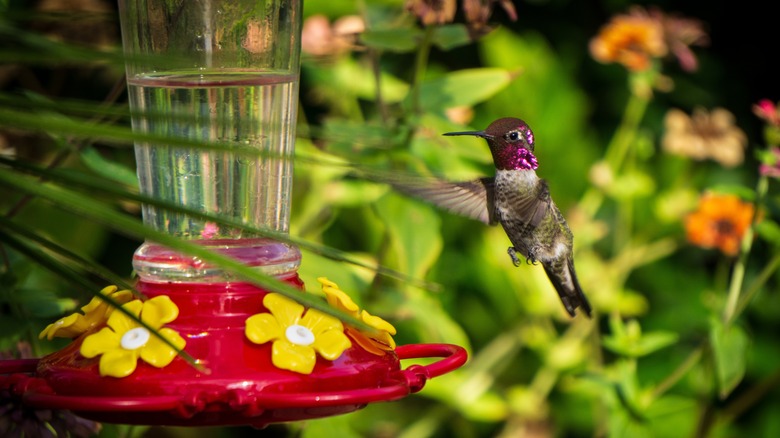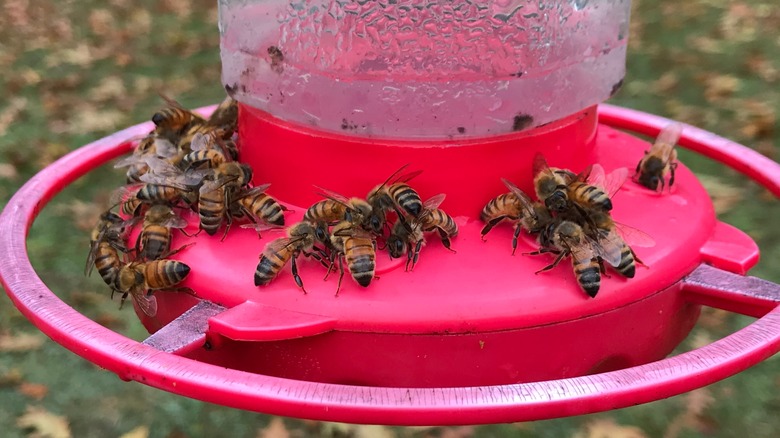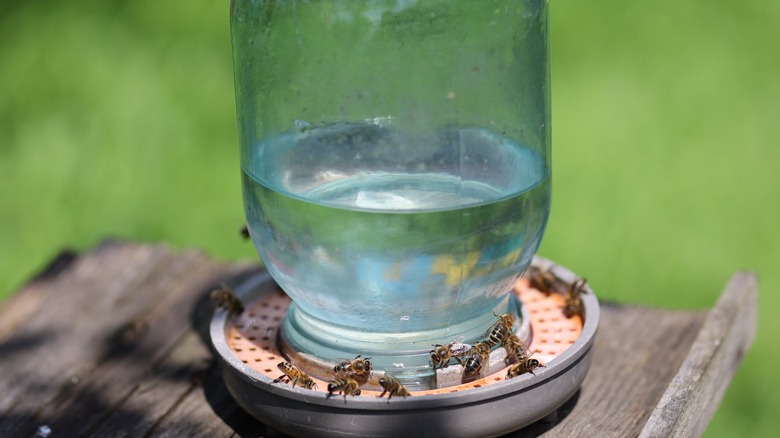Using Vicks To Repel Hummingbird Feeder Pests: Here's Why It's A Terrible Idea
We may receive a commission on purchases made from links.
A hummingbird feeder is a great way to add joy and vibrancy to your yard or garden while simultaneously providing some of nature's most whimsical creatures with nourishment. The only unfortunate part of feeding the hummingbirds, of course, is the fact that pests like bees and ants are fans of the same sweet nectar housed in your hummingbird feeder. Since these biting and stinging insects can pose more than just the risk of unsightliness, it can be tempting to reach for one of the easy solutions found across the web — like Vicks VapoRub — to try to repel the pests.
While rubbing some Vicks on your hummingbird feeder might sound like a quick and inexpensive fix for your pest problem, the issue isn't quite as simple as it seems. As a petroleum-based product, the oils found in Vicks can coat hummingbirds' wings and impact their ability to fly and regulate their internal body temperature. If you're searching for ways to keep ants and bees away from your hummingbird feeder, first consider the negative effects that this decision could have on the very birds you're attempting to feed.
How Vicks VapoRub can harm hummingbirds
The idea behind using Vicks VapoRub to repel hummingbird feeder pests is based on the myth that birds lack the ability to smell. In theory, bees and ants will be driven away from the feeder due to the strong menthol smell of the Vicks, but the hummingbirds won't notice it. This concept is not only faulty — it also fails to address the risks that Vicks and other petroleum or oil-based substances pose to hummingbirds' delicate feathers and wings.
When a petroleum-based product like Vicks is applied to the base of a hummingbird feeder, hummingbirds that brush against the base will end up with petrolatum and plant oils on their very fragile wings. These ingredients can cause their wings to become sticky and weighed down. When the bird attempts to fly away from the feeder, they may be incapable of flying normally or even unable to take off at all. Petroleum-based products and oils ending up on hummingbirds' feathers can also interfere with their ability to effectively insulate themselves and regulate their internal body temperature.
Natural alternatives for deterring hummingbird feeder pests
Fortunately, there are safe and natural alternatives to placing oil or petroleum-based products on your hummingbird feeders to deter pests. While it may seem too simple to make a difference, the first step to preventing bees and ants from gathering on your feeder is to address any leaks. It is the exposed nectar that attracts insects. If all its parts are fully tightened and the feeder continues to leak, replace it. Also, clean your hummingbird feeder weekly with soap and water.
If washing and preventing leaks isn't enough, there are other pest prevention options available that won't harm hummingbirds. If you like the idea of feeding pollinators, considering adding a separate feeder for the bees. Bees prefer a more concentrated nectar, so simply mixing a 2:1 ratio of sugar to water and placing it in a small, shallow dish or a DIY bee feeder near the hummingbird feeder will prompt the bees to switch over. Over time, you can gradually move the bees' nectar away from the hummingbird feeder, and they will follow. You can also purchase add-ons like bee guards and ant moats for your hummingbird feeder, or start over with a new glass feeder with built-in bee guards and an ant moat on Amazon for less than $20.


